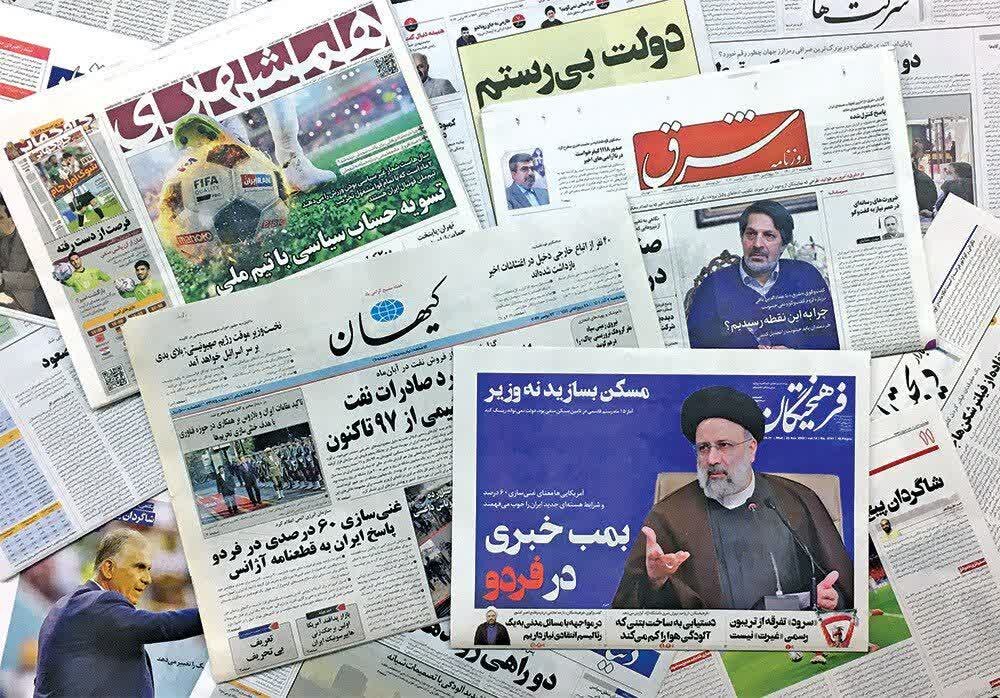Iran is an emerging power

Writing in Hamshahri, Deputy Chairman of the Iranian Parliament National Security and Foreign Policy Committee Abbas Moqtadaei says: In the past few decades, the Islamic Republic has turned from a country under the control of the colonial system into an influential country in regional and global equations with its anti-colonial policy.
In the current situation, countries like the U.S. and the European troika know that if Iran establishes strategic relations with any country, it will become strong.
Now Iran has emerged as an emerging power in the region. Therefore, many countries have put establishing strategic relations with Iran on their agenda.
Also in the past months, when the process of Iran's membership in the Shanghai Cooperation Organization became certain, many experts raised the idea that the power is shifting from the West to Asia (the East) because the Islamic Republic can encourage other countries to strengthen strategic cooperation.
Due to such developments, the White House is now feeling more threatened by Iran's growing power in the world than ever before and is doing its utmost to limit Iran. But the process of development indicates the failure of such plans.
Khorasan: Grossi on the road to nowhere
Commenting on a plan by the IAEA chief to visit Iran, Khorasan writes: In recent weeks, IAEA's Rafael Grossi, has made contradictory statements about Iran's nuclear case.
On one hand, he shows himself interested in traveling to Iran, and on the other, in his statements, he makes the existing atmosphere surrounding the nuclear case more tense.
These equivocal statements have caused serious reservations in Iran to invite him to Tehran.
Grossi made promises to Tehran in his three previous visits to Iran, but after returning to Vienna he did not fulfill any of them.
Tehran believes that the interest of Grossi to visit Iran is more a show-off than helping to resolve the deadlock in the JCPOA negotiations. Grossi's obedience to the U.S. and the Zionist regime is one of the main reasons for the impasse.
We must not forget that Grossi traveled to Israel a few days before the IAEA Board of Governors meeting in June. Immediately after his visit, the first anti-Iran resolution was adopted by the IAEA board, a move that led to a more tense situation.
Vatan-e-Emrooz: Is Erdogan playing with fire?!
Vatan-e-Emrooz refers to the tough positions of the Turkish authorities towards Iran after the shooting incident at the embassy of the Republic of Azerbaijan in Tehran on January 27. On Turkey’s goals, it writes: The first reason goes back to the synergy between the Turkish Security Service (MIT) and the Mossad in recent years.
Based on the unannounced synergy, Turkey and Israel are trying to prevent normal relations between the two neighboring countries, i.e. Iran and Azerbaijan, by creating crises.
But the second issue is the election concerns of Erdogan.
In the past months, Erdogan has seen a sharp decline in his popularity.
In such a situation, the president has tried to inflame ethnic prejudices in the minds of some dissatisfied Turkish voters by strengthening pan-Turkism and playing the role of Godfather for the Republic of Azerbaijan in favor of AK Party.
But without a doubt, the outcome will lead not only to the loss of Erdogan and MIT but also to the death of rationality in Turkey's security and regional politics.
Javan: Arrangement of negotiation table with the trumpet of panic!
The Javan newspaper writes: Macron says Iran's nuclear progress has reached an unprecedented stage, a remark that was repeated in Tel Aviv, Vienna, and the IAEA.
In a report on Thursday, the IAEA talked about changes in the Fordow Fuel Enrichment Plant (FFEP) and four Western countries reacted to it.
There are two scenarios in this regard; the first is that Iran's program has reached an alarming point. The report by the Agency and the reaction of the Western countries is based on such a scenario.
However, Iran started 60% enrichment two years ago and refining uranium to such a purity (60%) in Fordow dates back to late November 2022. This shows that Iran's nuclear program has not seen any significant changes in recent weeks.
This has led minds to an alternative scenario, that is, laying the groundwork for the resumption of negotiations to revive the JCPOA.
Resalat: Grossi’s visit to Tehran can help rectify mistakes
Hossein Kanaani Moghaddam, an expert on world politics, in an interview with Resalat, points to a plan by Grossi to visit Tehran and says: The visit of the IAEA director general shows that he intends to compensate for his negative actions.
"This visit is considered a positive step and it shows that the Europeans are backing down from negative actions and positions during the JCPOA negotiations," Kanaani Moghadam stated, adding Grossi should keep the negotiations away from the Zionist lobby and the pressure of some European countries.
Leave a Comment